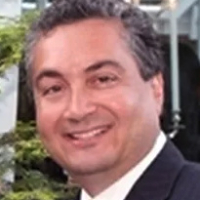Sunnyside Felony Lawyer, New York
Sponsored Law Firm
-
 x
x

Click For More Info:
-
Law Office Of Vincent Bianco Esq., P.C.
114 Old Country Road Suite 560 Mineola, NY 11501» view mapCriminal Law Where Every Client Matters
Vincent Bianco is a practicing lawyer in the state of New York who handles Criminal matters.
800-779-3490
George A. Vomvolakis
✓ VERIFIEDIf you have been charged with a crime in New York City, Westchester or Long Island you need an attorney who is well versed in local laws and knows how... (more)
Ronald Steven Nir
✓ VERIFIEDRonald Nir has represented individuals and corporations in Criminal Cases for more than 30 years. He has tried to completion well over 250 felony a... (more)
Nicholas Gregory Kaizer
✓ VERIFIEDNicholas Kaizer is a nationally -recognized expert in criminal defense, who has appeared in numerous courts around the country. He has lectured attorn... (more)
Gregory G. Smith
✓ VERIFIEDGregory Smith is a practicing lawyer in the state of New York handling civil rights matters.
FREE CONSULTATION
CONTACTAnne Joy D'Elia
FREE CONSULTATION
CONTACTWilson Antonio LaFaurie
FREE CONSULTATION
CONTACTFREE CONSULTATION
CONTACTFREE CONSULTATION
CONTACTCharles Miller
FREE CONSULTATION
CONTACT Vincent Bianco Mineola, NY
Vincent Bianco Mineola, NY AboutLaw Office of Vincent Bianco, Esq., P.C.
AboutLaw Office of Vincent Bianco, Esq., P.C. Practice AreasExpertise
Practice AreasExpertise





